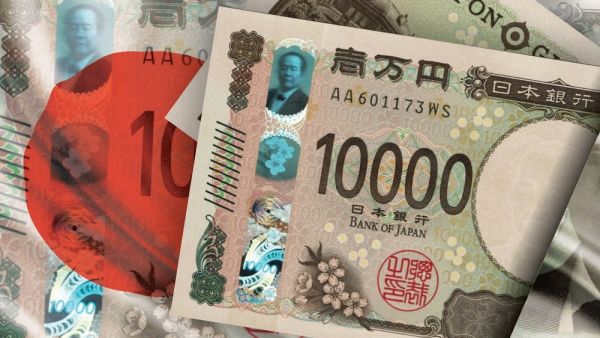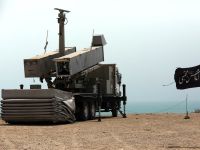Dr. Gil Feiler
Japan and the Middle East have maintained robust economic ties for decades, shaped largely by energy interdependence, trade, and investment dynamics. Japan’s industrialized economy is highly dependent on imported energy resources—particularly crude oil and natural gas—most of which come from the Middle East. Conversely, Middle Eastern countries have leveraged Japan’s demand to fuel their export revenues, while also benefiting from Japanese investments, technology, and infrastructure development. Over the past two decades, these relations have evolved in response to shifts in global energy markets, technological innovation, and regional geopolitical changes.
Energy as the Cornerstone of Economic Ties
Energy has been the central pillar of Japan–Middle East economic relations since the 1970s oil shocks, which prompted Japan to secure stable energy supplies. As of 2023, Japan imports over 90% of its crude oil, with approximately 88% coming from the Middle East, according to Japan’s Ministry of Economy, Trade and Industry (METI). The primary suppliers include:
- Saudi Arabia: ~40% of Japan's crude oil imports
- United Arab Emirates (UAE): ~25%
- Kuwait: ~8%
- Qatar: ~5%
- Iran (prior to sanctions): was once a significant exporter to Japan
Natural gas is also a vital part of the relationship. While Japan increasingly diversifies its liquefied natural gas (LNG) sources, Qatar remains a key supplier, contributing about 11% of Japan’s total LNG imports in 2022.
In return, Japan provides the Middle East with industrial equipment, automobiles, and advanced technologies. This mutually beneficial trade dynamic reinforces a strong economic partnership, though one asymmetrically centered on Japan’s dependence on hydrocarbons.
Trade Dynamics and Key Sectors
In 2022, Japan’s trade with the Middle East totaled over $160 billion, according to Japan External Trade Organization (JETRO), marking a significant rebound from COVID-19 lows in 2020. The trade breakdown is as follows:
- Imports from the Middle East: ~$110 billion (mostly crude oil and LNG)
- Exports to the Middle East: ~$50 billion
Key Export Sectors from Japan:
- Automobiles and Auto Parts: Japanese car brands like Toyota, Nissan, and Honda are dominant in markets such as Saudi Arabia, the UAE, and Qatar.
- Machinery and Electronics: Includes industrial machinery, construction equipment, and consumer electronics.
- Infrastructure and Construction Services: Japanese firms like Mitsubishi and Hitachi are active in infrastructure projects across the Gulf.
Regional Distribution:
- GCC countries (Saudi Arabia, UAE, Kuwait, Qatar, Oman, and Bahrain) account for over 80% of Japan's Middle East trade.
- Non-GCC countries, such as Iran (prior to sanctions), Iraq, Egypt, and Israel, also play limited but growing roles in Japan’s regional trade strategy.
Investment and Financial Cooperation
Japanese direct investment in the Middle East is relatively modest compared to Western powers but is increasing steadily, particularly in strategic sectors. The following areas see the most activity:
1. Energy and Renewable Energy
Japanese energy firms (e.g., JERA, INPEX, JOGMEC) collaborate with Middle Eastern companies on oil and gas exploration, refining, and LNG facilities. As the region shifts toward decarbonization, Japan is also investing in:
- Hydrogen projects in Saudi Arabia and the UAE
- Solar and wind energy partnerships, particularly in Oman and Jordan
2. Infrastructure and Urban Development
Japan has financed or built parts of:
- Metro systems (e.g., Cairo Metro)
- Ports and logistics facilities in the Gulf
- Industrial zones and smart cities, such as NEOM in Saudi Arabia (Japanese firms are among the technology partners)
3. Financial Cooperation
Japan’s Official Development Assistance (ODA) and Japan Bank for International Cooperation (JBIC) have supported Middle Eastern infrastructure and disaster resilience projects. Japan has extended credit lines and loans to countries like Egypt and Jordan, particularly after the Arab Spring.
Strategic and Diplomatic Context
Economic relations are deeply intertwined with diplomatic considerations. Japan has consistently maintained a neutral stance in Middle Eastern conflicts, allowing it to engage with diverse states—including Saudi Arabia, Iran, Israel, and Palestine—without alienating others. This diplomacy-first approach underpins stable economic engagement across the region.
In 2023, Japan launched the Japan–GCC Strategic Dialogue, aimed at deepening cooperation beyond oil. The initiative targets innovation, sustainability, digital transformation, and human resources.
Moreover, Japan supports the Abraham Accords and has explored business opportunities involving Israel and Gulf countries. Japan-Israel economic relations are focused on high-tech sectors such as cybersecurity, biotech, and AI.
Challenges and Risks
Despite the strength of economic ties, several challenges remain:
1. Geopolitical Risks
Tensions in the Strait of Hormuz, the Israel–Palestine conflict, or instability in Iraq and Iran could disrupt Japan’s energy imports and supply chains. Japan has deployed naval forces in the region to safeguard maritime transport routes.
2. Energy Transition Pressures
As Japan pursues net-zero goals by 2050, its long-term reliance on hydrocarbons poses a strategic dilemma. Japan is actively exploring hydrogen and ammonia as alternative fuels but transitioning away from Middle Eastern oil remains complex and gradual.
3. Competition from China and Western Powers
China has emerged as a dominant player in the Middle East, especially under the Belt and Road Initiative (BRI), often outpacing Japan in infrastructure and investment deals. Japan competes by emphasizing quality, technology, and long-term partnerships.
Future Outlook
The future of Japan–Middle East economic relations will likely be characterized by diversification and innovation. Key trends include:
- Energy diversification: Japan will increasingly partner with Gulf states on clean hydrogen, LNG, and carbon capture technologies.
- Digital economy and AI: Japan may leverage its expertise in robotics and artificial intelligence in collaboration with tech hubs like the UAE and Israel.
- Food security and agriculture: Japan has begun exporting agricultural technology and vertical farming systems to arid Middle Eastern countries.
- Tourism and culture: With Gulf countries opening to global tourism, Japan is also working on people-to-people ties, offering scholarships and cultural exchanges.
Japan’s emphasis on stability, long-term cooperation, and high-quality technology positions it as a resilient economic partner in a volatile region.
Conclusion
Economic relations between Japan and the Middle East are historically rooted in energy interdependence but are evolving in scope and complexity. With trade surpassing $160 billion and growing cooperation in infrastructure, green energy, and technology, the relationship remains vital for both regions. Japan's strategic neutrality and economic reliability continue to make it a preferred partner in the Middle East, even as both sides adapt to shifting global and regional dynamics.









